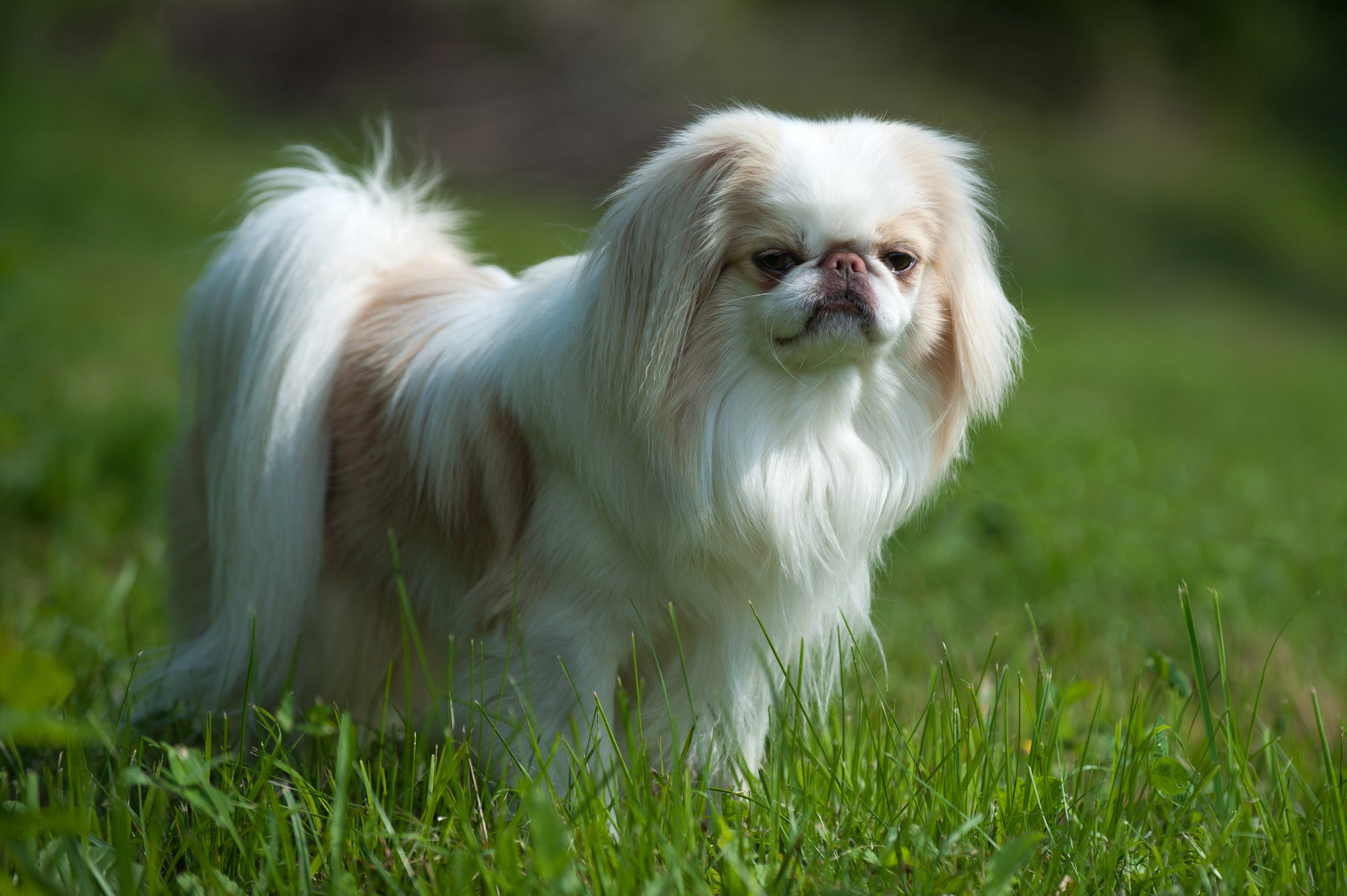Japanese Chin
Aristocratic by birth, the Japanese Chin is a dog of Chinese origin that has enjoyed favor in Japan for hundreds of years. A little bit of white at the inner corners of their eyes gives them a bright and curious expression. Their gait is lively, light, and easy, and their coat is straight, silky, and noble-looking.
Breed characteristics carousel
Learn More
Need to Know
- Dog suitable for non-experienced owners
- Basic training required
- Generally healthy breed
- Enjoys gentle walks
- Small dog
- Some drool
- Requires frequent grooming
- Quiet dog
- Barks and alerts to visitors/anything unusual
- Could have issues with unknown dogs but gets along with known dogs
- Gets along with other pets with training
- May need additional supervision to live with children
- Needs a small yard, can happily live in the city
- Can be left alone occasionally with training
- AKC Registered Breed

Personality
Devoted, quiet, calm, and eager, the Japanese Chin is a true companion dog that loves doing whatever its owner is doing, whether out walking or curled up on the couch. They are friends to everyone, gently playful, and loving. They have an almost cat-like demeanor and have some cat-like behaviors, such as climbing, jumping, and washing their faces with their front paws.
The Japanese Chin breed is an ancient Chinese, not Japanese breed, closely related to the Pekingese. They were the favored dogs of the Chinese aristocracy, often presented as gifts to visiting nobility. They might have arrived in Japan via Zen Buddhist teachers around 520 A.D., or a Korean prince might have introduced them around 732 A.D. They were highly revered by the Japanese Imperial family.
When Portuguese sailors first traded with the Japanese in the 16th century, Chins were brought to Europe. In 1853, Queen Victoria, champion of so many dog breeds, was presented with a Chin as a gift. In America in the 1800s, the breed was called the Japanese Spaniel. It’s moderately popular in America but still very popular in Japan.
Delicate, sensitive, and cat-like, Japanese Chins thrive in quiet homes with owners who are home most of the day. They thrive on owner interaction, especially when it comes to shadowing them around the house and teaching them fun tricks. They’re not overly energetic but they are clever and will gladly show off for their owners.
Exercise, training, and mental stimulation will keep the intelligent Chin happy.
So long as their owners are near, the Japanese Chin breed is happy. They do fine in smaller spaces but need a secure, fenced-in yard that is checked regularly for holes—they can slip through the smallest of gaps and are known to jump quite high.
The Japanese Chin’s coat is long and it’s important to keep it from getting tangled by brushing it regularly. Eyes, paws, and ears all need regular maintenance.
Quick to learn and eager to do so, the Japanese Chin breed enjoys dog training and learning tricks. Positive reinforcement is the best approach, using food, toys, and the opportunity to perform as motivation.
Delicate, sensitive, and quiet, the Chin does best in families with older children or no children. They are true companion dogs and do not like to be left alone.
The cost of a Japanese Chin from a breeder is significantly more than the cost of adopting one from a local shelter or rescue. The adoption fee usually covers additional items such as spaying or neutering, vaccines, and microchipping.

Learn more about feeding and caring for your Japanese Chin on Purina.
Did You Know?
- The Japanese Chin is often considered a cat and dog hybrid in looks and personality. “Chin” means cat-like in Chinese. They have cat-like behaviors such as a quiet demeanor, climbing, jumping, and washing their faces with their front paws.
